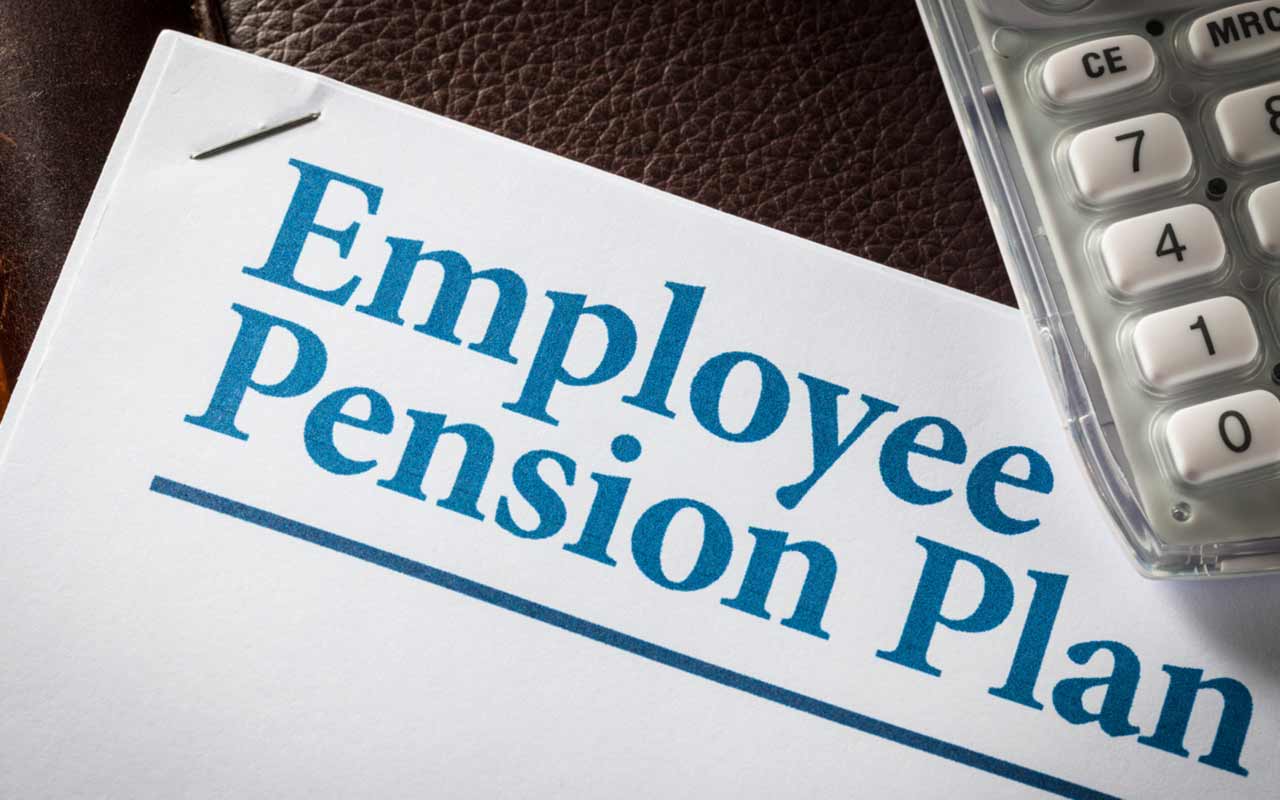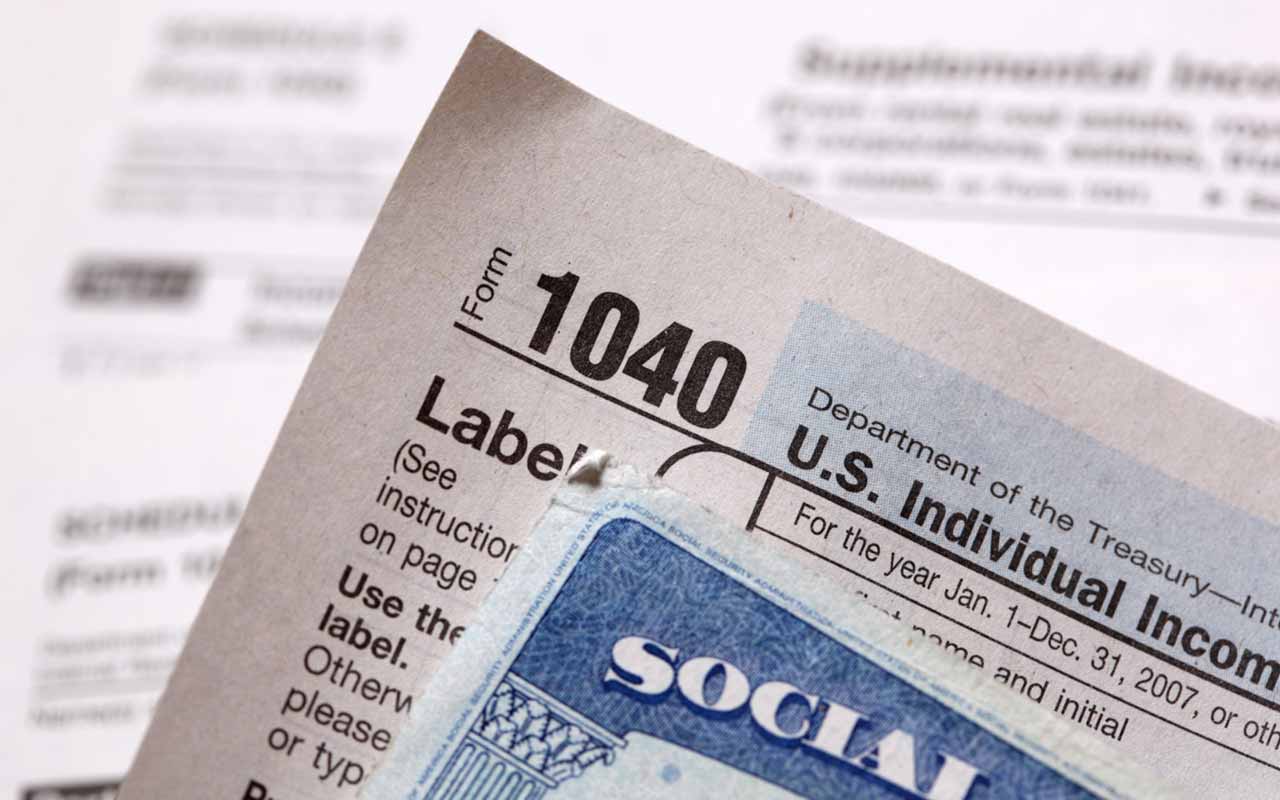7 Tax Forms That Can Accidentally Increase Your Tax Bill


Profit and prosper with the best of Kiplinger's advice on investing, taxes, retirement, personal finance and much more. Delivered daily. Enter your email in the box and click Sign Me Up.
You are now subscribed
Your newsletter sign-up was successful
Want to add more newsletters?

Delivered daily
Kiplinger Today
Profit and prosper with the best of Kiplinger's advice on investing, taxes, retirement, personal finance and much more delivered daily. Smart money moves start here.

Sent five days a week
Kiplinger A Step Ahead
Get practical help to make better financial decisions in your everyday life, from spending to savings on top deals.

Delivered daily
Kiplinger Closing Bell
Get today's biggest financial and investing headlines delivered to your inbox every day the U.S. stock market is open.

Sent twice a week
Kiplinger Adviser Intel
Financial pros across the country share best practices and fresh tactics to preserve and grow your wealth.

Delivered weekly
Kiplinger Tax Tips
Trim your federal and state tax bills with practical tax-planning and tax-cutting strategies.

Sent twice a week
Kiplinger Retirement Tips
Your twice-a-week guide to planning and enjoying a financially secure and richly rewarding retirement

Sent bimonthly.
Kiplinger Adviser Angle
Insights for advisers, wealth managers and other financial professionals.

Sent twice a week
Kiplinger Investing Weekly
Your twice-a-week roundup of promising stocks, funds, companies and industries you should consider, ones you should avoid, and why.

Sent weekly for six weeks
Kiplinger Invest for Retirement
Your step-by-step six-part series on how to invest for retirement, from devising a successful strategy to exactly which investments to choose.
The upcoming blizzard of little 1099 tax forms (which report various sources of "income" to the IRS) brings two key dangers:
1. Losing one that contains key information that needs to go on your 2017 tax return, and
2. Thinking you have to include every dime reported on the 1099s to the IRS. Lots of the dollars reported on 1099s are tax-free.
The IRS gets a copy of every 1099 information return, so it's important to get this right. Set up a file right now to collect the forms as they arrive in the mail. And, read on to protect yourself from accidentally increasing your 2017 taxes by being misled by a member of the 1099 family.

The 1099-Q for Payouts from Education Accounts
The 1099-Q can be a heart-stopper. It reports distributions from a state 529 college saving plan or Coverdell education savings account. But the odds are very, very good that the payout is completely tax free. That's the case if the money was used to pay tuition or other qualifying costs.
Tax is due only if you used the money for other purposes, and then tax is due only on earnings, not what's likely to be the majority of the payout that represents a return of contributions. Read the instructions carefully before you pay tax on any part of a 1099-Q distribution.

The 1099-G for Government Payments
Millions of Americans get 1099-Gs each year showing payments they received from various federal, state and local governments. Sometimes, the amount is fully taxable, as is the case for unemployment compensation. (Sorry, but it's true: The government gives with one hand and takes with the other.) But, when it comes to state income tax refunds, the vast majority of recipients can simply ignore this 1099.
For the 70% or so of taxpayers who claimed the standard deduction last year, the state refund reported on the 1099 is 100% tax free. It's also tax free if you claimed the state sales tax deduction in lieu of the state income tax write-off. And, even if you itemized and claimed the income tax deduction, part of the refund may be tax free. There's a worksheet in the instruction packet. Take the time to run through it to protect yourself against an expensive mistake.

The 1099-LTC for Long-Term-Care Benefits
The IRS requires long-term-care insurance companies to report to patients the full amount of benefits paid out under the policy during the year to the patients directly and to third parties on their behalf. But don't assume you have to pay tax on those benefits.
If your policy is "tax-qualified," which it likely is if it reimburses only for qualified long-term-care expenses, then the benefits are tax-free. You don't even have to report the benefits on your return. If it's a "per diem" policy, which pays a set amount regardless of actual expenses, benefits in excess of a certain amount ($360 a day in 2017), may be taxable. You'll need to fill out IRS Form 8853 to be sure.

The 1099-C for Cancellation of Debt
This one is sometimes referred to as the "adding insult to injury" form. If you're in bad enough financial straits that a lender forgives all or part of the debt you owe, on a credit card bill, say, or a home mortgage, the law generally demands that you treat the cancelled debt as fully taxable income and share some of your "good fortune" with Uncle Sam.
You have two outs. If you are insolvent—that is, your debts exceed your assets—you don't have to report cancelled debt as income if the debt is cancelled in bankruptcy. Also, if your home mortgage is "non-recourse," meaning the lender's only remedy in case of default is to repossess the property but not sue you for unpaid debt, then the cancelled debt is not considered taxable income.
An additional break that Congress created in the wake of the Great Recession to exclude up to $2 million of mortgage debt (on a primary residence) that was forgiven as part of a foreclosure or a short sale expired at the end of 2016.

The 1099-B for Broker and Barter Transactions
This 1099 might actually open the door to a tax-saving loss. It reports the proceeds of the sale of a stock, mutual fund shares or other assets. But the full amount is never taxable. You get to subtract your "basis"—that's generally what you paid for the asset. If that's more than the proceeds, you have a loss that will offset other taxable income and reduce your tax bill. Sometimes, the 1099-B shows your basis in the asset that was sold; sometimes it doesn't. But in any case, make sure you subtract your basis from the proceeds, so you report only the real profit or real loss on your tax return.

The 1099-R for Pensions, Annuities, IRAs
Distributions reported on a 1099-R might be fully taxable, such as a payout from a traditional IRA into which you have never made nondeductible contributions. (If you made even a single nondeductible contribution, part of each distribution is tax free.) Or, the amount reported could be partially taxable, such as a payout from a commercial annuity you have annuitized. (Each payment also includes a tax-free return of part of your investment in the contract.) Or, the distribution reported to you and the IRS could be completely tax-free, as is the case if you made a qualified rollover from one IRA to another. In this case, you still have to report the payout on your tax return but, in the section for the taxable amount, $0.

The SSA-1099 for Social Security Benefits
One thing is for sure: Part of your Social Security benefits reported on this form is tax free. For lower-income taxpayers, in fact, 100% is. For the higher earners, up to 85% of the benefits are taxed. It all depends on how your total income compares with a base amount for your filing status. And, for this test, income means your adjusted gross income not counting any Social Security plus 50% of your benefits plus any tax-free interest you earned during the year.
For singles with total income of $25,000 or less, benefits are completely tax free. The same goes for married taxpayers filing a joint return whose total income is $32,000 or less. As income rises above the base amounts, more benefits are taxed until the maximum 85% is taxed. The tax form instructions include a worksheet to help figure out exactly what's what. Use it to make sure you don't pay more tax than you have to on your benefits.
Profit and prosper with the best of Kiplinger's advice on investing, taxes, retirement, personal finance and much more. Delivered daily. Enter your email in the box and click Sign Me Up.

-
 Dow Leads in Mixed Session on Amgen Earnings: Stock Market Today
Dow Leads in Mixed Session on Amgen Earnings: Stock Market TodayThe rest of Wall Street struggled as Advanced Micro Devices earnings caused a chip-stock sell-off.
-
 How to Watch the 2026 Winter Olympics Without Overpaying
How to Watch the 2026 Winter Olympics Without OverpayingHere’s how to stream the 2026 Winter Olympics live, including low-cost viewing options, Peacock access and ways to catch your favorite athletes and events from anywhere.
-
 Here’s How to Stream the Super Bowl for Less
Here’s How to Stream the Super Bowl for LessWe'll show you the least expensive ways to stream football's biggest event.
-
 Should You Do Your Own Taxes This Year or Hire a Pro?
Should You Do Your Own Taxes This Year or Hire a Pro?Taxes Doing your own taxes isn’t easy, and hiring a tax pro isn’t cheap. Here’s a guide to help you figure out whether to tackle the job on your own or hire a professional.
-
 Don't Overpay the IRS: 6 Tax Mistakes That Could Be Raising Your Bill
Don't Overpay the IRS: 6 Tax Mistakes That Could Be Raising Your BillTax Tips Is your income tax bill bigger than expected? Here's how you should prepare for next year.
-
 Will IRS Budget Cuts Disrupt Tax Season? What You Need to Know
Will IRS Budget Cuts Disrupt Tax Season? What You Need to KnowTaxes The 2026 tax season could be an unprecedented one for the IRS. Here’s how you can be proactive to keep up with the status of your return.
-
 3 Retirement Changes to Watch in 2026: Tax Edition
3 Retirement Changes to Watch in 2026: Tax EditionRetirement Taxes Between the Social Security "senior bonus" phaseout and changes to Roth tax rules, your 2026 retirement plan may need an update. Here's what to know.
-
 A Free Tax Filing Option Has Disappeared for 2026: Here's What That Means for You
A Free Tax Filing Option Has Disappeared for 2026: Here's What That Means for YouTax Filing Tax season officially opens on January 26. But you'll have one less way to submit your tax return for free. Here's what you need to know.
-
 When Do W-2s Arrive? 2026 Deadline and 'Big Beautiful Bill' Changes
When Do W-2s Arrive? 2026 Deadline and 'Big Beautiful Bill' ChangesTax Deadlines Mark your calendar: Feb 2 is the big W-2 release date. Here’s the delivery scoop and what the Trump tax changes might mean for your taxes.
-
 Are You Afraid of an IRS Audit? 8 Ways to Beat Tax Audit Anxiety
Are You Afraid of an IRS Audit? 8 Ways to Beat Tax Audit AnxietyTax Season Tax audit anxiety is like a wild beast. Here’s how you can help tame it.
-
 States That Tax Social Security Benefits in 2026
States That Tax Social Security Benefits in 2026Retirement Tax Not all retirees who live in states that tax Social Security benefits have to pay state income taxes. Will your benefits be taxed?
